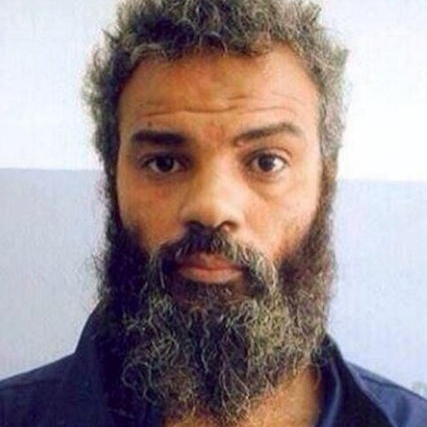The brother of a CIA contractor killed in the 2012 terrorist attack in Benghazi, Libya said he's mostly satisfied with the mixed verdict against the only suspect to have been brought to trial so far, but he urged U.S. law enforcement and intelligence to not let up in their mission to put the other perpetrators "in a jail cell or, frankly, in a grave, whatever it takes."
Greg Doherty, older brother of slain CIA contractor and ex-Navy SEAL medic Glen Doherty, said in an exclusive interview with Code and Dagger last week that the conviction of Ahmed Abu Khatallah on terrorism-related charges was good enough for him, even if Khatallah was cleared of the more serious murder charges.
Doherty said he suspects Khatallah, a local militia leader, played a larger role in the attack than perhaps the prosecution was able to prove, but Doherty said the Libyan is "looking at a bunch of time that'll probably put him in jail for the rest of his life."
"It's kind of like putting Al Capone away for tax evasion," Doherty said.
Khatallah was convicted in late November of four out of 18 charges related to the attack, including terrorism- and firearm-related counts, meaning the 46-year-old could face up to 60 years in prison, according to the Department of Justice.
On the night of Sept. 11, 2012, dozens of armed militants attacked a U.S. diplomatic compound in Benghazi, an eastern Libyan city on the Mediterranean coast. U.S. Ambassador to Libya Chris Stevens and State Department technical specialist Sean Smith died in the initial assault when the building in which they were hiding was set on fire. The survivors from that compound managed to escape to a nearby CIA facility, but that too came under attack hours later. CIA contractors Glen Doherty and Tyrone Woods were struck and killed by a mortar blast. Doherty had led a rescue team to Benghazi from the Libyan capital of Tripoli and was killed with minutes of his arrival.
During the trial, prosecutors showed a video in which they said Khatallah was clearly identifiable as at the scene of the attack and toting an AK-47. Three paid informants also testified to his involvement, as the prosecution tried to paint him as a ringleader for the deadly ordeal. The defense argued Khatallah was being used as a scapegoat.
Greg Doherty attended the first few days of the seven-week trial in Washington, D.C.
"I don't know if I can describe the feeling, but that's what I've been doing all week, just looking at this guy," he told Code and Dagger then. "It was like looking at something that you know is important and you don't know what it means."
Khatallah himself was unremarkable. "He looks like not much. He looks like just sort of could be anybody," he said.
READ: In Benghazi Trial, Brother of Slain CIA Contractor Awaits 'Some Kind of Justice'
As Khatallah's trial was underway, U.S. forces captured another Benghazi suspect, identified as Mustafa al-Imam, who the White House said would also "face justice in the United States." He's only the second of dozens of suspects to be apprehended, five and a half years after the four Americans were killed.
Doherty said he understands the U.S. will never get everyone involved, but -- as long as it doesn't put U.S. intelligence or special operations forces at unnecessary risk -- he wants to see as many key players as possible rounded up to answer for their roles.
"If that's picking them off one at a time... I'm good with keeping the pressure on for everyone responsible," he said. "If they were there, I'd love to see them in a jail cell or frankly in a grave. Whatever it takes."
Questions about the Barack Obama administration's security precautions before, actions during and response to the 2012 attack became a political lightning rod for years afterwards, especially for critics of then-Secretary of State Hillary Clinton. Following Clinton's presidential election loss in 2016, however, much of the public seems to have lost interest in Benghazi.
Greg Doherty said he's not worried about that, because in the wake of Glen's death, the family set up The Glen Doherty Memorial Foundation, which is "able to give away about 20 scholarships to special forces soldiers transitioning to civilian life right now."
"Good people don't just remember, they honor their memories with actions," he said. "More of that is always welcome."
[Do you have a tip or question for Code and Dagger? Reach us at CodeAndDagger@protonmail.com. And if you like what you read and want to help keep the site running (kind of) smoothly, click here to learn how you can lend your support. ]














